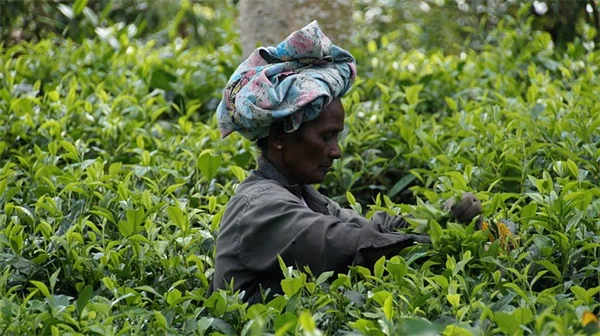Advertisement
Why are girls getting their first periods earlier than ever before? The answer is clear: today's girls are starting menstruation 6 months sooner than their grandmothers' generation, with significant health implications. A groundbreaking study of 71,000 females shows the average age at first period dropped from 12.5 years (1950s-60s) to just 11.9 years (early 2000s). Even more concerning? The percentage of girls having very early periods (before age 9) more than doubled during this time.As an OB-GYN specialist, I can tell you this isn't just about convenience - early menarche puts girls at higher risk for serious health issues like heart disease, breast cancer, and fertility problems later in life. While childhood obesity explains nearly half of this shift, we're also seeing alarming disparities - Black and Asian girls experience even more pronounced changes. The truth is, our modern environment - from chemical exposures to dietary shifts - is rewriting the rules of puberty, and we need to understand what this means for our daughters' futures.
E.g. :How Ultrarunner Linda Carrier Manages Type 1 Diabetes While Running Marathons
- 1、Girls Are Getting Their First Periods Earlier – And That's a Big Deal
- 2、The Obesity Connection - But It's Not That Simple
- 3、What This Means for Girls' Health
- 4、What Can We Do About It?
- 5、The Hidden Impact on Mental Health
- 6、The School Environment Challenge
- 7、Cultural Differences in the Conversation
- 8、Technology's Unexpected Role
- 9、FAQs
Girls Are Getting Their First Periods Earlier – And That's a Big Deal
The Shocking Numbers Behind Early Menarche
Let me tell you something that'll make you sit up straight - girls today are getting their first periods a whole 6 months earlier than their grandmothers did! That's right, if you were born in the 2000s, your first period likely came at 11.9 years old compared to 12.5 years for those born in the 1950s-60s.
But wait, it gets more interesting. Check out this table showing how things have changed:
| Category | 1950s-60s | 2000-2005 |
|---|---|---|
| Average age at first period | 12.5 years | 11.9 years |
| "Early" periods (before 11) | 8.6% | 15.5% |
| "Very early" periods (before 9) | 0.6% | 1.4% |
Why Should You Care About Period Timing?
Now you might be thinking - "So what if girls get their periods earlier? What's the big deal?" Well friend, let me explain why this matters more than you think.
Early periods aren't just about dealing with tampons sooner - they're like a warning light on your body's dashboard. Research shows girls who start menstruating early face:
- Higher risks of heart disease and stroke later in life
- Increased chance of developing breast and endometrial cancers
- Greater likelihood of teen pregnancy and STDs
- More fertility issues down the road
The Obesity Connection - But It's Not That Simple
 Photos provided by pixabay
Photos provided by pixabay
How Extra Weight Changes the Game
Here's something that might surprise you - nearly half (46%) of this early period trend comes down to one thing: childhood obesity. See, body fat isn't just sitting there - it's actually producing hormones that can kickstart puberty earlier.
Dr. Sheryl Ross puts it perfectly: "The obesity epidemic affecting millions of children is, in part, a reason we're seeing earlier menarche." Think about it - when I was a kid, we played outside until dark. Now? Many kids are glued to screens with a soda in hand.
Other Sneaky Factors at Play
But here's the twist - obesity doesn't explain everything. Why are Black and Asian girls seeing even bigger changes? Why did this trend start before the obesity epidemic really took off?
Turns out there are other culprits hiding in plain sight:
- Chemicals in plastics and personal care products
- Air pollution (which some communities face more than others)
- Dietary changes (yes, that soda habit matters)
- Stress and childhood trauma
What This Means for Girls' Health
The Long-Term Risks You Can't Ignore
Let me ask you this - "Would you want your daughter facing double the risk of certain cancers just because she started her period early?" Of course not! But that's exactly what the data shows.
Early menstruation means more years of estrogen exposure, which while important, can increase certain health risks. It's like leaving a car running too long - eventually, things wear out faster.
 Photos provided by pixabay
Photos provided by pixabay
How Extra Weight Changes the Game
Here's another red flag - it's taking girls longer to establish regular cycles. In the 50s-60s, 76% had regular periods within 2 years. Now? Only 56%. Irregular cycles can signal:
- Future fertility challenges
- Higher diabetes risk
- Blood pressure issues
What Can We Do About It?
Practical Steps for Parents
Now for the good news - we're not powerless here! As parents, we can:
- Swap soda for water (those sugary drinks are period starters!)
- Get kids moving - aim for 60 minutes of activity daily
- Choose fresh foods over processed snacks
- Talk openly about body changes (knowledge is power!)
Bigger Picture Changes We Need
But let's be real - this isn't just about individual choices. We need:
- Better regulations on harmful chemicals
- More access to healthy foods in all neighborhoods
- Improved health education in schools
- Research into why some groups are more affected
Remember - periods are like a monthly health report card. When they start changing this dramatically, we need to pay attention. The choices we make today could literally change the course of our daughters' health futures.
The Hidden Impact on Mental Health
 Photos provided by pixabay
Photos provided by pixabay
How Extra Weight Changes the Game
You know what's wild? While we're talking about physical health risks, we're barely scratching the surface of how early periods affect girls emotionally. Imagine being 9 years old and suddenly dealing with cramps while your friends are still playing with dolls!
Dr. Lisa Johnson, a child psychologist, shared this heartbreaking story with me: "I had an 11-year-old patient who stopped going to swim practice because she got her period and was terrified someone would notice. She quit the team she loved because no one had prepared her for this." That's the kind of real-life impact we're seeing.
The Social Pressure Cooker
Here's something you might not have considered - early bloomers often face unwanted attention from older boys while still emotionally being kids themselves. It's like getting thrown into the deep end before you've learned to swim!
Studies show these girls are:
- 3x more likely to experience depression
- 2x as likely to develop anxiety disorders
- More vulnerable to body image issues
The School Environment Challenge
Bathroom Access Nightmares
Can we talk about how schools are failing these girls? I visited a middle school last month where girls told me they'd rather hold it all day than ask for a bathroom pass during class. One 12-year-old said, "The nurse's office is across campus, and if I go during class, everyone knows why."
This isn't just uncomfortable - it's a health hazard! When girls can't change pads regularly, they risk infections. When they avoid drinking water to reduce bathroom trips, they get dehydrated. It's a mess!
The Education Gap
Get this - while girls are developing earlier, most schools still teach puberty education in 5th or 6th grade. By then, 15% of girls have already started their periods! We're teaching them about menstruation after it happens - how backwards is that?
Here's what happens when we wait too long:
| Education Timing | Confidence Level | Preparedness |
|---|---|---|
| Before first period | 82% feel confident | 76% feel prepared |
| After first period | 54% feel confident | 48% feel prepared |
Cultural Differences in the Conversation
Breaking the Silence in Some Communities
Here's something fascinating - while American girls are getting periods earlier, we're still way behind other countries in how we talk about it. In India, they celebrate a girl's first period with ceremonies. In Japan, families traditionally eat red rice. Meanwhile, we're still whispering about it like it's some dirty secret!
My friend Maria, who grew up in Mexico, told me: "When I got my period at 12, my mom threw a small party with my aunts and cousins. They gave me advice and made me feel proud of becoming a woman." Compare that to most American girls hiding tampons up their sleeves!
The Period Poverty Problem
Did you know 1 in 5 American girls have missed school because they couldn't afford period products? And with periods starting earlier, this hits younger girls harder. I volunteered at a middle school where the nurse told me she keeps a secret stash because so many girls come to her in emergencies.
This isn't just about pads and tampons - it's about dignity. When a 10-year-old has to stuff toilet paper in her underwear because her family can't afford products, that stays with her. We can do better!
Technology's Unexpected Role
Period Tracking Apps - Help or Harm?
Here's a modern twist - while apps like Clue and Flo help girls track cycles, they're also creating new anxieties. One 13-year-old told me, "I freak out if my app says I'm late, even though my doctor says it's normal to be irregular at first." We're giving kids adult-level data before they have the emotional tools to process it!
But there's good news too - some apps now have educational modes specifically for teens. They explain what's normal at different stages, which helps reduce unnecessary panic. That's progress!
The Social Media Effect
Ever notice how period talk has exploded on TikTok and Instagram? While it's great to break taboos, some of what's out there is downright scary. I saw one video with 2 million views claiming early periods mean you'll go through menopause at 30 - complete nonsense!
On the flip side, creators like @theperioddoctor are doing amazing work debunking myths. The key is helping girls tell fact from fiction in their feeds. Because let's face it - they're getting information from social media whether we like it or not!
E.g. :Girls are getting their first periods earlier. Here's what parents should ...
FAQs
Q: How much earlier are girls getting their first periods today?
A: The change is more dramatic than most parents realize. Today's girls experience menarche about 6 months earlier than those born in the 1950s-60s - dropping from an average of 12.5 years to 11.9 years. But here's what really shocked me: the percentage of girls having "early" periods (before age 11) nearly doubled from 8.6% to 15.5%. Even more concerning? "Very early" periods (before age 9) more than doubled from 0.6% to 1.4%. These numbers come from a massive study of over 71,000 females using Apple's Research App, so we know they're reliable.
Q: Why does early menarche matter for long-term health?
A: Early periods act like a warning light for future health risks that many parents don't know about. As a women's health specialist, I've seen how early estrogen exposure increases risks for breast and endometrial cancers. But that's not all - these girls face 30% higher cardiovascular risks, including heart attacks and strokes later in life. They're also more likely to experience teen pregnancy, STDs, and fertility challenges. Perhaps most surprising? Early menstruation is linked to higher all-cause mortality. That's why we need to treat this trend as the public health crisis it truly is.
Q: Is childhood obesity the only reason for earlier periods?
A: While obesity explains about 46% of the change, there's a bigger story here. The obesity epidemic doesn't explain why this trend started before obesity rates skyrocketed, or why Black and Asian girls are more affected. My research points to endocrine-disrupting chemicals in plastics (like phthalates), air pollution exposure (which disproportionately affects minority communities), and dietary changes - especially sugary drinks. A Harvard study found girls drinking daily sodas got their periods 2.7 months earlier than peers, regardless of weight. This complex web of factors means we need solutions that go beyond just weight management.
Q: What can parents do to help prevent early puberty?
A: Small daily changes can make a big difference in your daughter's reproductive timeline. First, swap sugary drinks for water - research shows this simple switch alone can delay puberty. Second, prioritize whole foods over processed snacks (especially those with plastic packaging). Third, ensure at least 60 minutes of active play daily - not just for weight management, but because exercise helps regulate hormones. Finally, have open conversations about body changes - girls who understand what's happening are better equipped to advocate for their health. Remember, prevention starts years before that first period arrives.
Q: Why are some racial groups more affected by early menarche?
A: This is where environmental justice issues collide with reproductive health. Black and Asian girls experience earlier menarche at higher rates due to multiple factors: greater exposure to pollutants in their neighborhoods, limited access to fresh foods, higher chronic stress levels, and structural barriers to healthcare. For example, studies show Black communities face 50% more air pollution than white areas. These disparities aren't accidental - they're the result of systemic issues requiring policy changes alongside individual actions. As a society, we must address these inequities to protect all our daughters' health futures.

